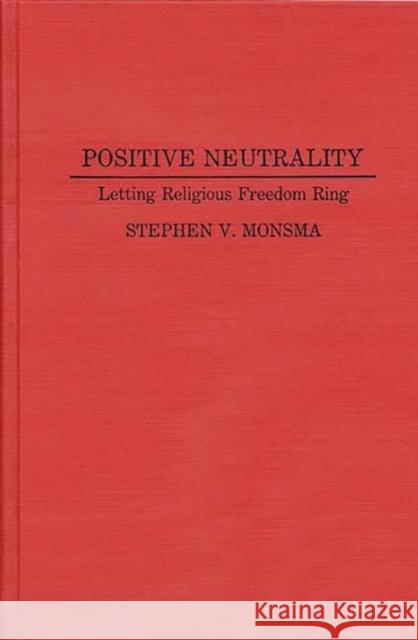Positive Neutrality: Letting Religious Freedom Ring » książka
Positive Neutrality: Letting Religious Freedom Ring
ISBN-13: 9780313279638 / Angielski / Twarda / 1992 / 304 str.
Church-state relations are becoming more and more critical. Deepening controversies over church-state relations, the increasing religious pluralism of American society, and the changing makeup of the Supreme Court are forcing a rethinking of approaches to church and state in the public policy realm. Stephen Monsma offers a new approach rooted in structural pluralism as a normative way to understand church-state relations. He suggests that the government should use a principle of positive neutrality in handling church-state relations. He integrates historical, theoretical, social, and legal perspectives and writes in a lively manner for interdisciplinary audiences of students, scholars, and general readers.
This study provides an historical background of church and state relations in American society and discusses the development of church-state theory and practice. The author argues that confusions today can be traced back to flaws in the disestablishment settlement of the eighteenth century, flaws which have come to light in the twentieth century. He looks at this pluralist society and the concept of positive neutrality and of religious freedom historically and theoretically and then applies his approach to current issues relating to national policy and Supreme Court decision-making.











